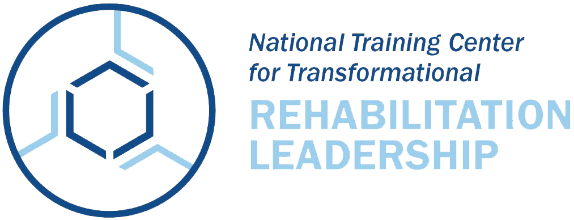Being a Self-Aware Leader
Self-awareness is crucial for effective leadership as it enables leaders to understand their
strengths, weaknesses, emotions, and motivations, leading to improved decision making,
communication, and overall leadership effectiveness. Self-awareness helps
leaders understand their impact on others and build trust, fostering a positive and
productive work environment.
A self-aware leader has a desire to understand how they act as a leader. They take steps
to gain a deep understanding of themselves so they can see how their thoughts, feelings,
and behaviors influence others. Think of it this way: Self-awareness is the key to
understanding who you are as a leader.
A key component of developing into a self-aware leader is understanding the role of
emotional intelligence. Emotional intelligence is about recognizing and managing your
emotions while also understanding and influencing others. The more you understand
emotional intelligence and use it to affect change in how you lead, you can determine
those pieces of your “self” that you want to keep (as they are in line with purpose, vision,
teaming, and engagement) as well as those you need to change (because they run
counter to building energy and engagement).
In their article titled “Lessons from Leadership and Self-Deception in action: Creating
self-aware leaders,” the Arbinger Institute (2000) notes that, often, the root cause of
disengaged teams is self-deception at the leadership level. In fact, research shows that
managers account for at least 70% of the variance in employee engagement scores across business units.” So, what was it that the Arbinger Institute identified as the need? To create self-aware leaders!
They continue:
“Great teams don’t just happen; they’re nurtured by self-aware leaders. Everything leadership does, from their actions to their behaviors, influences company culture and team dynamics. While confidence is a key player in effective management, a leader who falls victim to self-deception can create major roadblocks that impact the organization’s overall success lead[Ing] to a disengaged and underutilized team. In this environment, team members might hesitate to share ideas or offer constructive criticism out of fear of resistance or dismissal. This attitude stifles creativity, innovation, and the team’s ability to reach its full potential.
Conversely, a self-aware leader can empower their team. By prioritizing self-awareness, leaders can move away from a one-size-fits-all approach and leverage their team’s unique strengths and perspectives. This self-awareness unlocks individual strengths and encourages collaboration, leading to greater overall success.”
Here are four questions you can ask yourself to prompt your journey to becoming a more
self-aware leader:
- What insights can I learn from my past leaders and my own leadership experiences
to challenge my current leadership style and become more self-aware? (Leadership
wisdom) - Who in my current professional or personal spheres are leaders that demonstrate
self-aware leadership and lead engaged and enthusiastic teams? (Leadership
identity) - How do those led by these identified leaders perceive them as a leader based on
their on their leadership behaviors and traits? (Leadership reputation) - What vision, values, and purpose do you see those leaders manifest as key elements, making them self-aware and facilitative of creating unified followers and teams? (Leadership brand)
The parallels between the NTCTRL Transformative Leadership curriculum and becoming a self-aware leader are clear. From commonly held vision/values that align with purpose to being conscious in how we lead, and from building a culture desired by all to letting
innovation flow and collaboration thrive, the ongoing effort to grow self-awareness in
our leadership brings us to the “sweet spot” in leading. This “sweet spot” opens the gates
to meet the vision and purpose teams and organizations aspire to.
References and Resources
How to be a More Self-Aware Leader (video)
Leadership and Self-Deception (Arbinger Institute & EBSCOhost books. (2000). Leadership and self-deception: Getting out of the box. Berrett-Koehler).
Submitted By:
Russ Thelin
Senior Policy Fellow
Institute for Community Inclusion (ICI)
University of Massachusetts
EVENTS
June Cohort
We are looking for participants to join our next NTCTRL Cohort in June 2025! If you or someone you know is interested in joining us, please don’t hesitate to contact us with questions, or click below to register today.
ABOUT US
Our Vision:
We envision leaders who transform society so people with disabilities thrive.
BOOK CORNER
Leadership and Self-Deception: Getting out of the Box
By The Arbinger Institute
“Leadership and Self-Deception explores how self-deception clouds our vision, causing us to blame others instead of recognizing our own faults. This habit of self-betrayal can trap us
in conflicts, hinder relationships, and impede personal growth and effective leadership. The book emphasizes that by becoming more self-aware and reflecting on our actions, leaders can break this cycle and build better relationships through an inward mindset, kindness, and respect for others. The book provides practical tips to overcome self-deception, such as deeply considering our motivations, admitting mistakes, and listening to others. By being honest, apologizing when necessary, and ensuring promises are kept, leaders can foster trust and improve team dynamics. Through real-life stories and examples, the book serves as a guide to successful leadership and better relationships.”


